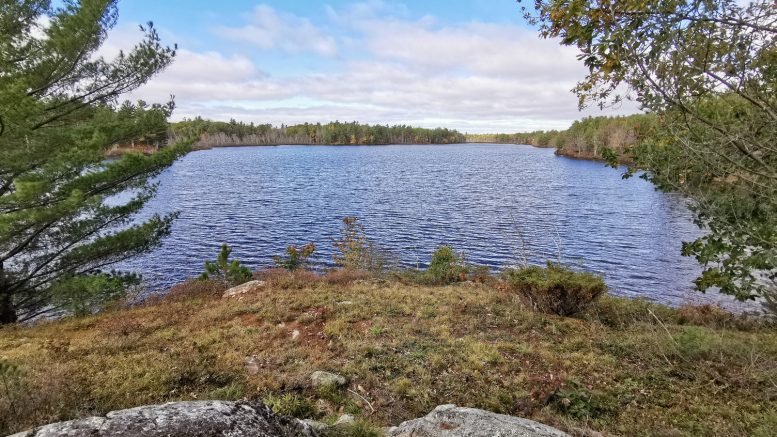The Nature Conservancy of Canada (NCC) announced Friday the complete protection of ecologically sensitive lands surrounding Loon Lake, connecting a link of protected land that extends from Frontenac County into Lennox and Addington County’s Depot Lake Conservation Area.
NCC and nature champion Monte Hummel have reached an agreement to protect the final piece of private land in a conservation network that spans over 2,000 hectares.
“Protecting such a beautiful place on the Canadian Shield during my lifetime has been an honour,” Hummel, who previously owned the land, said in a release. “And I feel that extending that stewardship for another 999 years is the least I can do to thank Loon Lake for its generosity to my family in our modest off-grid cabin for over 60 years. Further, the conservation agreement announced today includes a lovely bay called Glen’s Cove, named in memory of Canadian conservation philanthropist Glen Davis — a close personal friend for nearly 40 years, who made a monumental impact on conservation across Canada.”
For more than 25 years, NCC has partnered with Hummel to conserve much of Loon Lake through several conservation agreements. At 0.4 hectares, this latest small but significant land parcel at Glen’s Cove, located at the east end of the lake, helps to ensure that the area remains barrier-free for wide-ranging animals such as black bear, fisher and otter, and that the lake is protected for migratory birds, like common loon. The conservation agreements prohibit development and place limitations on land use. They also conserve habitat, ensuring the delivery of clean water to downstream communities, and protect the area’s ecological integrity by establishing a large contiguous block of conserved land.
Hummel’s passion for the local wilderness is an extension of his family’s 60-year connection to the land. The protected area provides habitat for over 30 species at risk, including monarch butterfly (endangered), snapping turtle (special concern), nighthawk (special concern), whip-poor-will (threatened) and five-lined skink (special concern).
“This latest conservation agreement brings to life a conservation vision decades in the making,” said Rob McRae, NCC program director for Eastern Ontario. “Monte Hummel’s dedication to nature has allowed us to connect wildlife corridors and secure water sources for our communities. This is an important contribution to the conservation of the broader area northwest of Kingston.”
In addition to Hummel, NCC wishes to acknowledge the many donors that made this conservation project possible. They include the Government of Ontario, through the Greenlands Conservation Partnership, the Schad Foundation and other donors.

